FRD 2021 Speaker Bios
.jpg) Evgeny Ambrosov
Evgeny Ambrosov
Chair of the Arctic Economic Council
Mr. Ambrosov serves as the Arctic Economic Council’s Chairman during the Icelandic business community’s chairmanship (2021-2023). Evgeny Ambrosov is deputy Chairman of the Management Board and Director of Maritime Operations, Shipping and Logistic of NOVATEK. He has been working in the Russian shipping industry since 1979. Mr. Ambrosov has worked for nearly 30 years in Russia’s Far Eastern Shipping Company, rising from the position of Cargo Officer on board of liner vessels to President & CEO of the FESCO Transportation Group. He held an executive position in Sovcomflot. In 2009, he joined the company with responsibility for commercial fleet operations and new business development, including a sophisticated fleet operating in the harsh environments of the Far Eastern and Arctic seas, and for developing the potential of the Northern Sea Route for large tankers’ transits.
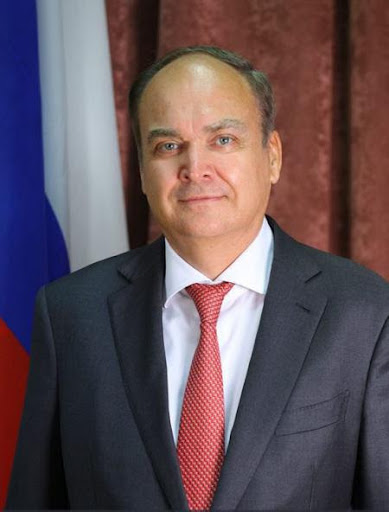 Ambassador Anatoly Antonov
Ambassador Anatoly Antonov
Russia’s Ambassador to the United States
His Excellency Anatoly Antonov is a career diplomat who has served for more than 30 years in both the Soviet and Russian Ministry of Foreign Affairs. From 2002 to 2004, he was the Ambassador-at-Large of the Russian Foreign Ministry, and from 2004 to 2011 he served as the Director of the Department of Security and Disarmament. Antonov also held the position of Deputy Minister of Defense from 2011 to 2016. Prior to his role as the Russian Ambassador to the US, Antonov was the Deputy Foreign Minister of the Russian Federation.
On August 21, 2017 President Vladimir Putin appointed Anatoly Antonov Ambassador Extraordinary and Plenipotentiary of the Russian Federation to the United States of America and, concurrently, Permanent Observer of the Russian Federation at the Organization of American States in Washington.
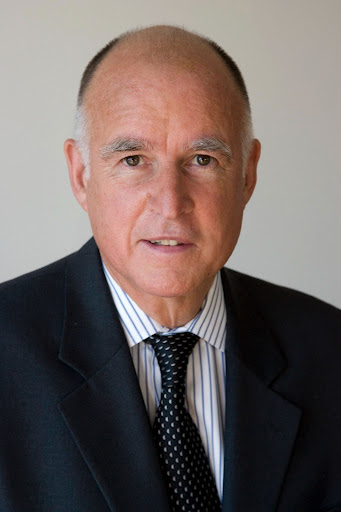 Governor Jerry Brown
Governor Jerry Brown
Edmund G. Brown Jr. was born in San Francisco on April 7, 1938. He graduated from St. Ignatius High School in 1955 and entered Sacred Heart Novitiate, a Jesuit seminary. He later attended the University of California, Berkeley, graduating in 1961 before earning a J.D. at Yale Law School in 1964. Brown was elected Trustee for the Los Angeles Community College District in 1969, California Secretary of State in 1970 and Governor of California in 1974 and 1978. After his governorship, Brown lectured and traveled widely, practiced law, served as chairman of the state Democratic Party and ran for president.
In 1998, Brown was elected Mayor of Oakland and California Attorney General in 2006. He was elected to a third gubernatorial term in 2010 and to a historic fourth term in 2014.
As Governor, Brown eliminated the state’s multi-billion dollar budget deficit, spearheading successful campaigns to establish a robust Rainy-Day Fund to prepare for the next economic downturn and provide billions in new funding for California’s schools and roads. Under Brown, California cut its unemployment rate to a record low, added nearly 3 million new jobs and expanded health coverage to millions more Californians, while enacting sweeping criminal justice, immigration, workers’ compensation, water, pension, education, housing and economic development reforms. While Brown was Governor, California also established nation-leading targets to protect the environment and fight climate change and by 2045, the state will generate 100 percent of its electricity from renewable sources and achieve carbon neutrality.
Brown currently serves as chair of the California-China Climate Institute housed at UC Berkeley, executive chair of the Bulletin of the Atomic Scientists and on the board of the Nuclear Threat Initiative.
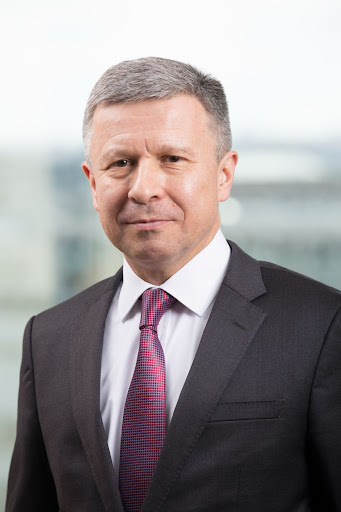 Nikolai Kolesnikov
Nikolai Kolesnikov
Executive Vice President & Chief Financial Officer, Sovcomflot
Mr Kolesnikov joined Sovcomflot (MOEX:FLOT), a major international marine energy transportation group, in June 2005 and currently holds the position of Executive Vice President & Chief Financial Officer. He is a member of the Executive Board of Sovcomflot, sits on the boards of a number of the Group’s companies, and chairs the Company’s Investment and Finance Committees. Previously he worked for 12 years as an investment banker with Morgan Grenfell/Deutsche Bank in Moscow and with JPMorgan and EBRD in London. Mr Kolesnikov started his professional career in 1985 with a major Moscow-based shipping company and the predecessor of Sovcomflot.
Nikolai Kolesnikov graduated with honours from the Moscow Institute of Finance, holds an MBA degree from Instituto de Empresa Business School in Madrid, and completed Columbia Business School’s Senior Executive Programme.
.jpg) Nikolay Korchunov
Nikolay Korchunov
Russian Ambassador at Large for Arctic Cooperation, Chair of the Arctic Council
Nikolay Korchunov is a career diplomat who has served as the Ambassador-at-Large for the Arctic Cooperation at the Ministry of Foreign Affairs (MFA) of Russia and the Senior Arctic Official of the Russian Federation to the Arctic Council since December 2018. This year, Russia and Mr. Korchunov assumed the rotating chairmanship of the Arctic Council. Prior to his current role, Korchunov occupied various positions at the headquarters of the MFA of Russia and abroad, including postings at the embassies of the Russian Federation to Sweden and Finland and at the Russian Mission to NATO. In addition, he served as Head of Russia’s delegation to the Arctic Council’s Task Force on Arctic Marine Cooperation and the Task Force on Improved Connectivity in the Arctic from 2015 until 2018. Nickolay Korchunov is a member of the Northern Sea Route Public Council and Expert Council on Arctic issues under the State Duma.
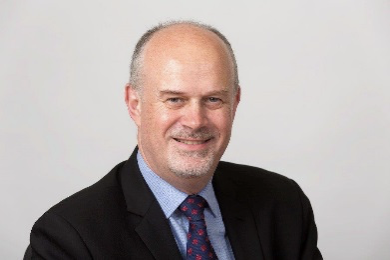 Andrew McGrahan
Andrew McGrahan
President Chevron Neftegaz Inc
Andrew McGrahan has been with Chevron for almost 40 years starting his career in 1981 working in the UK North Sea. For the last 28 years he has been working primarily on Chevron’s Eurasian assets. He joined Tengizchevroil in 1993 playing a large role in developing the marketing and transportation strategy and infrastructure to export Tengiz crude, gas, LPG’s and sulphur and has a significant role Chevron’s overall regional transportation strategy. For the last 18 years he led Chevron’s position in the Caspian Pipeline Consortium (CPC), including leading negotiation on the $5.5 billion Expansion project. From October 2007 to March 2020 he was Chairman of CPC-R and is a member of the Board of both CPC-R and CPC-K. Since 2012 he has been on the Board of the American Chamber of Commerce in Russia serving on its Executive Committee and is President of the Petroleum Advisory Forum in Russia. He has been in his current role of President of CNI since 2011.
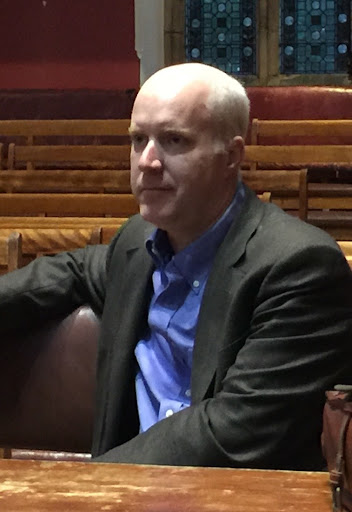 Christopher McKenna
Christopher McKenna
University Reader in Business History and Strategy, Saïd Business School and Fellow and Tutor in Management at Brasenose College, University of Oxford
Chris is currently Co-Director of the Global History of Capitalism Project in the History Faculty at Oxford which supports doctoral research, teaching innovations, and a series of case studies. He is particularly interested in the historical development and evolving strategies of professional firms and their role in the global transformation of business, non-profit organisations and the state.
McKenna teaches undergraduates, MBAs, Executive MBAs and doctoral students as well as executives in Oxford. A popular lecturer, Chris was twice chosen as one of Oxford’s very best teachers for the United Kingdom's National Teaching Fellowship Award, and he has been awarded several grants within Oxford to support his teaching innovations.
Chris first worked on Wall Street and later in the City of London before entering academia. He has held research fellowships at Yale University, the Harvard Business School and Georgetown Law. He has also held visiting teaching appointments at Warwick Business School and the University of Toulouse. Prior to joining the University of Oxford in 2000, Chris taught at the Wharton School in the University of Pennsylvania.
McKenna has a wide variety of research interests, including the international history of white-collar crime, the development and administration of professional firms, the transmission and translation of management models and the influence of professionals in shaping corporate governance. His first book on the growth of elite management consulting firms, The World’s Newest Profession, was named one of the best books of the year by the Financial Times. His next book, Partners in Crime, will examine the international history of white-collar crime from the eighteenth century to the present. Chris’s research has been featured in the Harvard Business Review, The Sunday Times, The Wall Street Journal, The New Yorker and the Economist.
Chris holds a doctorate in history from Johns Hopkins University and an undergraduate degree in economics from Amherst College. Along with many academic awards, including top mid-career business historian, McKenna is a Fellow of the Royal Historical Society in London.
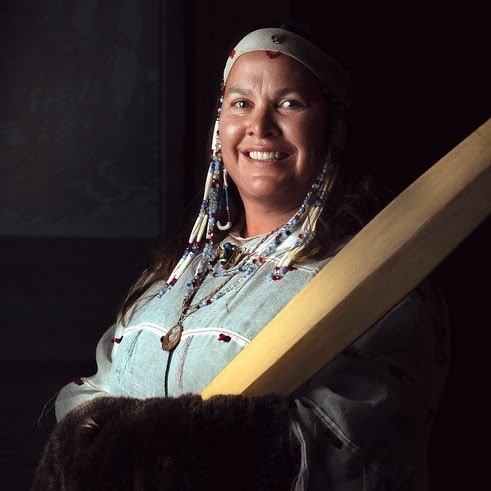 Lauren Peters
Lauren Peters
Agdaagux Tribe of King Cove, Alaska / Tribe of Tanax Amix of St. Paul Island, Alaska
Lauren Peters is a second year PhD scholar in Native American Studies at UC Davis with a Designated Emphasis in Human Rights. She is enrolled with the Agdaagux Tribe of King Cove and the Tribe of Tanax Amix of St. Paul Island, Alaska. She has been chosen as the RWJS Health Policy Scholar and the Mellon Public Scholars awardee this year supporting her work finding and rematriating stolen children who died in Native American Boarding schools. She formally served on the national NAGPRA Committee under President Obama.
.png) Alexander Petrov
Alexander Petrov
Historian, Russian Academy of Science
Dr. Petrov is the Chief Researcher at the Center for North American Studies of the Russian Academy of Sciences. He specializes in the history of Russian America, and the Russian-American Company in California. His research topics include Russian-American relations; Russian heritage in the United States and the history of the Russian Orthodox Church in North America.
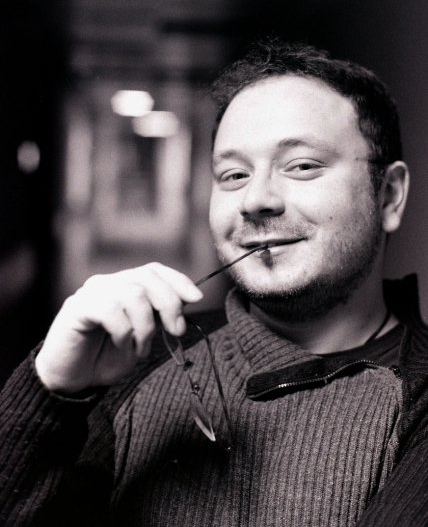 Igor Polishchuk
Igor Polishchuk
Igor Polishchuk is Fort Ross Conservancy’s Director of External Relations. Part of his responsibilities includes organizing and coordinating historical research pertaining to Metini - Fort Ross. Igor holds a Master of Arts degree from the University of Aberdeen, Scotland, and a Master of Science degree in Russian and East European Studies from the University of Oxford, UK. In his spare time, he enjoys traveling, reading and writing, as well as collecting old Russian coins and lore legends.
.jpg) Matthew Rojansky
Matthew Rojansky
Director of the Wilson Center’s Kennan Institute
Matthew Rojansky is Director of the Kennan Institute at the Woodrow Wilson Center in Washington, D.C. An expert on U.S. relations with the states of the former Soviet Union, especially Russia, Ukraine, and Belarus, he has advised governments, intergovernmental organizations, and major private actors on conflict resolution and efforts to enhance shared security throughout the Euro-Atlantic and Eurasian region.
Previously, Rojansky was Deputy Director of the Russia and Eurasia Program at the Carnegie Endowment for International Peace. There, he founded Carnegie's Ukraine Program, led a multi-year project to support U.S.-Russia health cooperation, and created a track-two task force to promote resolution of the Moldova-Transnistria conflict. He also served as an Embassy Policy Specialist at the U.S. Embassy in Kyiv, Ukraine, and as a Visiting Scholar in the Research Division at the NATO Defense College.
Rojansky previously served as Executive Director of the Partnership for a Secure America (PSA). Founded by former congressman Lee Hamilton (D-IN) and former senator Warren Rudman (R-NH) with a group of two dozen former senior leaders from both political parties, PSA seeks to rebuild bipartisan dialogue and productive debate on U.S. national security and foreign policy challenges. While at PSA, Rojansky orchestrated high-level bipartisan initiatives aimed at repairing the U.S.-Russian relationship, strengthening the U.S. commitment to nuclear arms control and nonproliferation, and leveraging global science engagement for diplomacy.
Rojansky is an adjunct professor at Johns Hopkins SAIS, and serves as U.S. Executive Secretary for the Dartmouth Conference, a track-two U.S.-Russian conflict resolution initiative begun in 1960. He has lectured at colleges and universities throughout the United States, Russia and Europe, and is a member of the OSCE Cooperative Security Initiative and the Euro-Atlantic Security Leaders Group.
Rojansky is frequently interviewed on TV and radio, and his writing has appeared in the New York Times, the Washington Post, and Foreign Policy. He holds an A.B. from Harvard College and a J.D. from Stanford Law School.
.jpg) Vladimir Rudakov
Vladimir Rudakov
Editor-in-chief of the "Historian" magazine
Vladimir Rudakov is a Russian historian and journalist. Mr. Rudakov received a PhD in Philology and now serves as the Editor-in-chief of the "Historian" magazine since 2015. Mr. Rudakov is the author of several dozen scientific works on the history of medieval Russia and the history of ancient Russian literature.
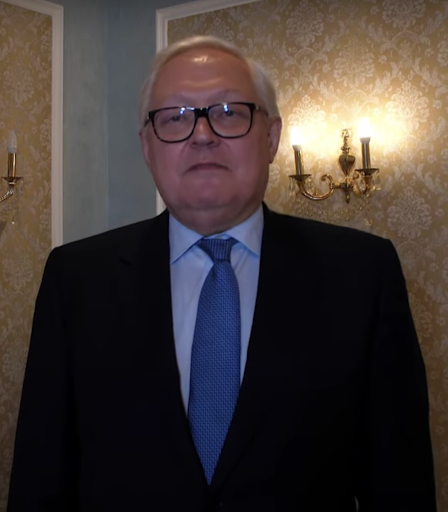 Sergey Ryabkov
Sergey Ryabkov
Deputy Minister of Foreign Affairs of the Russian Federation, Ambassador Extraordinary and Plenipotentiary of the Russian Federation, Chief Negotiator on Strategic Stability Dialogue with the U.S.
Deputy Minister Ryabkov is responsible for bilateral relations with North and South America, non-proliferation and arms control. In 1982, graduated from the Moscow State Institute of International Relations of the Ministry of Foreign Affairs. Served at several positions both at the central office of the Russian Foreign Ministry and abroad. In 1995-1999, was the Head of the OSCE Unit of the Department of European Cooperation. In 1999 – 2002 – Senior Counsellor (political) of the Russian Embassy to the U.S. In 2002-2005, served as the Minister Counsellor (Deputy Chief of Mission) of the Russian Embassy to the U.S. In 2005-2008 – the Director of the Department of European Cooperation. Since August 2008, Mr. Ryabkov has been serving as the Deputy Minister of Foreign Affairs, and a chief negotiator on arms control issues.
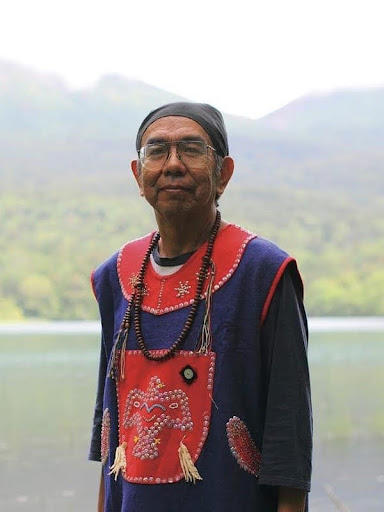 Bob Sam
Bob Sam
Councilman for Sitka Tribe of Alaska
Bob Sam is Tlingit from Sitka, Alaska serving as a councilman for Sitka Tribe of Alaska. A federally recognized tribal government. Currently serves as liaison between Tribal Council and Sitka Historic Preservation Commission as vice chair. Is knowledgeable in Alaska Native history since contact with Russian America. I serve as caretaker of the Russian Orthodox Cemetery in Sitka restoring for over 30 years. Restored over 100,000 graves of Alaskans and assisted in return over 500 bodies repatriated back to Alaska.
Received numerous awards and recognition for his work such as Advisory Council of Historic Preservation award for the largest repatriation of human remains returning over 138 Alaska Native remains back to their families. When Secretary of Interior Gail Norton presented this award she said that Bob Sam was the man who was changing the way human remains are treated. Received the Indian Health Service Directors award for healing the spiritual, mental and physical aspects of American Indians and Alaska Natives. Bob is also recognized internationally for assistance in repatriation of Ainu remains to Hokkaido. Successfully helped with largest repatriation in Japanese history.
Currently am assisting with return of Alaska Native Children buried in Carlisle cemetery. Am assisting descendants such as Lauren Peters who successfully repatriated her ancestors as well. Their are 13 children from Alaska buried at Carlisle. Am finding families and villages associated with these children.
I am actively involved with preservation of Alaska Native History and Culture. As a historian, storyteller and caretaker of sacred sites and cemeteries. A regular visitor to Fort Ross as a storyteller with Alaska Native Day at Fort Ross. Actively involved with research of Fort Ross cemetery I am interested in the history of human beings buried there and how they are treated for Rest In Peace.
.jpg) Mike Sfraga
Mike Sfraga
Chair of US Arctic Research Commission (USARC), Director of Polar Institute
Dr. Mike Sfraga has recently been appointed by President Joe Biden to chair U.S. Arctic Research Commission (USARC). Dr. Sfraga is the founding director of the Polar Institute and also serves as the director of the Global Risk and Resilience Program at the Woodrow Wilson International Center for Scholars. An Alaskan and a geographer by training, his work focuses on the changing geography of the Arctic and Antarctic landscapes, Arctic policy, and the impacts and implications of a changing climate on political, social, economic, environmental, and security regimes in the Arctic.
Sfraga served as distinguished co-lead scholar for the U.S. Department of State’s inaugural Fulbright Arctic Initiative from 2015-2017, a complementary program to the U.S. Chairmanship of the Arctic Council; he held the same position from 2017-2019. He served as chair of the 2020 Committee of Visitors Review of the Section for Arctic Science (ARC), Office of Polar Programs, National Science Foundation, and currently serves on the Finnish Institute for International Affairs Scientific Advisory Council (SAC). Sfraga previously served in a number of academic, administrative, and executive positions including vice chancellor, associate vice president, faculty member, department chair, and associate dean.
Sfraga has testified before the U.S. Senate and House of Representatives, he maintains an active national and international speaking and facilitation schedule, and his commentary has been featured in several major media outlets including MSNBC, National Public Radio, Voice of America, The Wall Street Journal, Alaska Public Media, CCTV/CGTN, Bloomberg News, and C-SPAN.
Sfraga is the author of the biography Bradford Washburn: A Life of Exploration, is affiliate professor at the International Arctic Research Center, University of Alaska Fairbanks, serves as the co-director of the University of the Arctic’s Institute for Arctic Policy, and has served on a number of non-profit boards and advisory committees. Sfraga earned the first PhD in geography and northern studies from the University of Alaska Fairbanks.
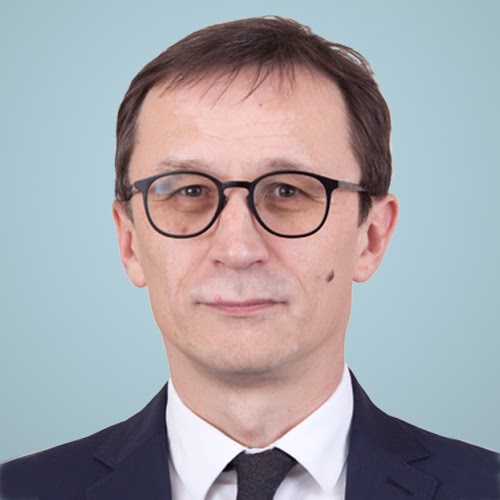 Rashid Sharipov
Rashid Sharipov
Vice President of Transneft
Rashid Sharipov was appointed Vice-President of Transneft in 2016.
In 2013–2015, Mr. Sharipov held the position of Vice President – Head of President’s Office at Rosneft.
In 2013, was the Executive Vice President of Gazprombank JSC.
Previously, held executive positions in a number of commercial organizations.
In 1993, graduated from California Western School of Law with an M.C.L. (Master of Comparative Law) degree.
In 1991, Rashid Sharipov graduated from the Moscow State Institute of Foreign Affairs of the MFA of the USSR, with a degree in International Relations.
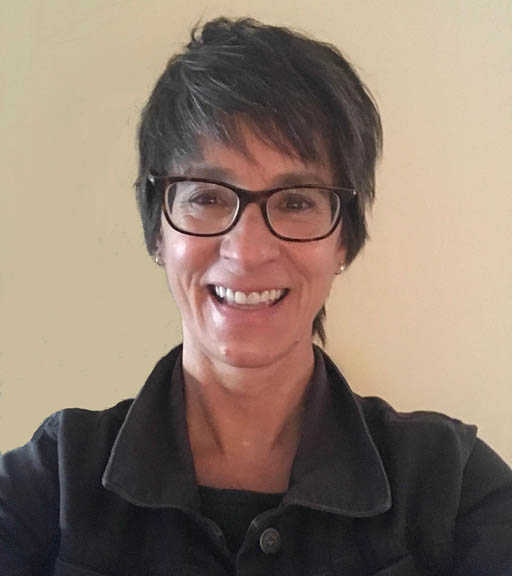 Sarah Sweedler
Sarah Sweedler
Fort Ross Conservancy CEO
Sarah Sweedler is CEO of Fort Ross Conservancy, a 501(c)(3) nonprofit and Cooperating Association at Fort Ross State Historic Park and Salt Point Park. Starting in 2012 Ms. Sweedler co-led and implemented Fort Ross Dialogue, a conference attended by high-level diplomats, business & thought leaders, and academics, emphasizing Pacific Rim second-track communication between Russia and the United States. As CEO, Ms. Sweedler’s goals are to develop the 3,400-acre Fort Ross park to be a self-sustaining, cross-cultural and educational destination; to steward the physical landscape and increase its biodiversity, and to ensure FRC expands its interpretation to include more diverse narratives from the people connected to these lands.
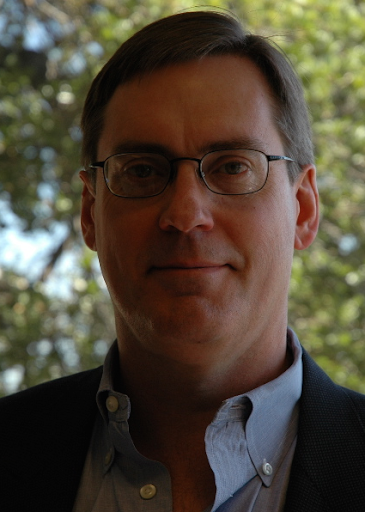 Jonathan Tiemann
Jonathan Tiemann
Founder and President of Tiemann Investment Advisors
Dr. Jonathan Tiemann is founder and President of Tiemann Investment Advisors, LLC, an independent investment advisory firm in Menlo Park, California. In addition to his work managing investment portfolios, for the past several years he has conducted independent historical research into banking and finance, with particular emphasis on California in the decades prior to and including the Gold Rush.
Most recently, Tiemann has been engaged in developing a series of historical case studies for the Global History of Capitalism project of the Oxford Centre for Global History, University of Oxford. Two of these cases, “Money, Cattle Hides, and William A Leidesdorff: California Before the Gold Rush,” and “Discounting gold: Money and Banking in Gold Rush California,” are currently available in the Project’s case studies series. A third, “The Alaskan fur rush and the Russian-American Company,” is nearing completion. His next project for the series is to study the pivotal role of King Kamehameha and the Sandwich Islands in the development of the Pacific trade in the early 19th century.
Tiemann holds a B.S. in Applied Mathematics from Yale College, an M.S. in Operations Research from Stanford University, and a Ph.D. in Finance from Yale University. Prior to beginning his investment management career, he was a member of the faculty of the Harvard Business School, where he taught Finance. He has written on banking and finance subjects ranging from Alexander Hamilton and the Compromise of 1790 to Bitcoin.
